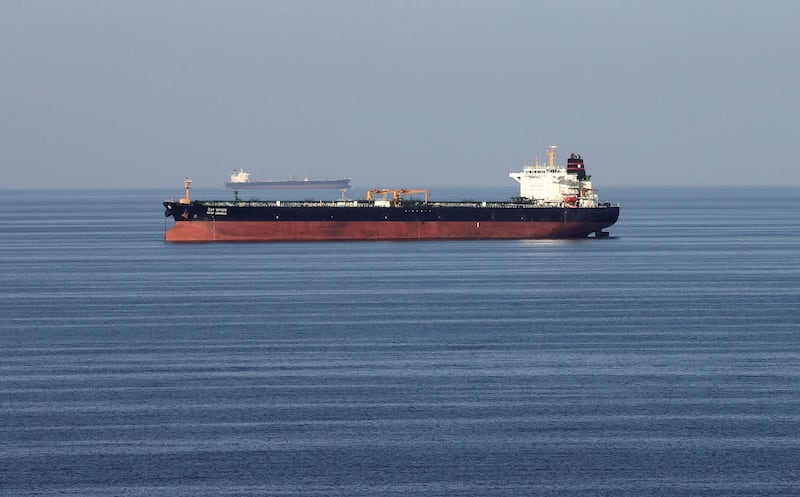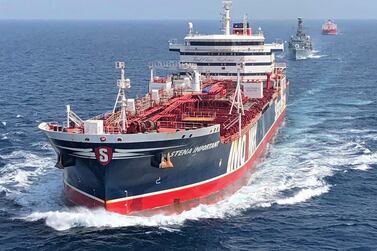The US government has been in talks with international partners to form a maritime coalition that would help to secure shipping in the Gulf and counter Iran threats.
America seeks security and naval input from countries in monitoring, escorting and defending their ships in the area.
US Secretary of State Mike Pompeo said on Monday that Washington had asked more than 60 nations to provide assistance for the Sentinel Programme in the Strait of Hormuz.
So far, these have been the responses:
US: Leading the coalition
Washington has hosted three meetings so far on the Sentinel Programme. Two were hosted at the State Department and one at the Central Command in Tampa, Florida.
UK: Joined the coalition
British Defence Secretary Ben Wallace announced the decision on Monday. “The deployment of Royal Navy assets is a sign of our commitment to our UK-flagged vessels, and we look forward to working alongside the US and others to find an international solution to the problems in the Strait of Hormuz,” Mr Wallace said.
China: Considering
“If there happens to be a very unsafe situation we will consider having our navy escort our commercial vessels,” the Chinese ambassador to the UAE, Ni Jian, told Reuters in Abu Dhabi on Tuesday. “We are studying the US proposal on Gulf escort arrangements,” the embassy later said.
Australia: Considering
Defence Minister Linda Reynolds said on Sunday that “the request the US has made is a serious and complex one. That's why we're giving this request serious consideration. We will ultimately, as we always do, decide what's in our sovereign interests".
Germany: No
German Foreign Minister Heiko Maas said last week that Germany wouldn’t participate in the mission. Berlin "considers the US strategy of maximum pressure on Iran to be wrong", Mr Maas said on a visit to Warsaw at the end of July.
South Korea: May send a naval unit
South Korea's Maekyung business newspaper said the country had decided to send the antipiracy Cheonghae naval unit. Seoul's Defence Ministry said the government was exploring measures to protect its ships in the area but no decision had been made, Reuters reported.
Israel: May provide intelligence
Foreign Minister Israel Katz said in a closed session on Tuesday that Israel was part of the US-led coalition and was assisting the mission with intelligence and other unspecified fields, the Israeli Ynet News reported.
France: No
Politico reported on Friday that France will not be participating in the programme.
Italy, Japan, Sweden, Denmark, India: Undecided
These countries have not announced a decision.







